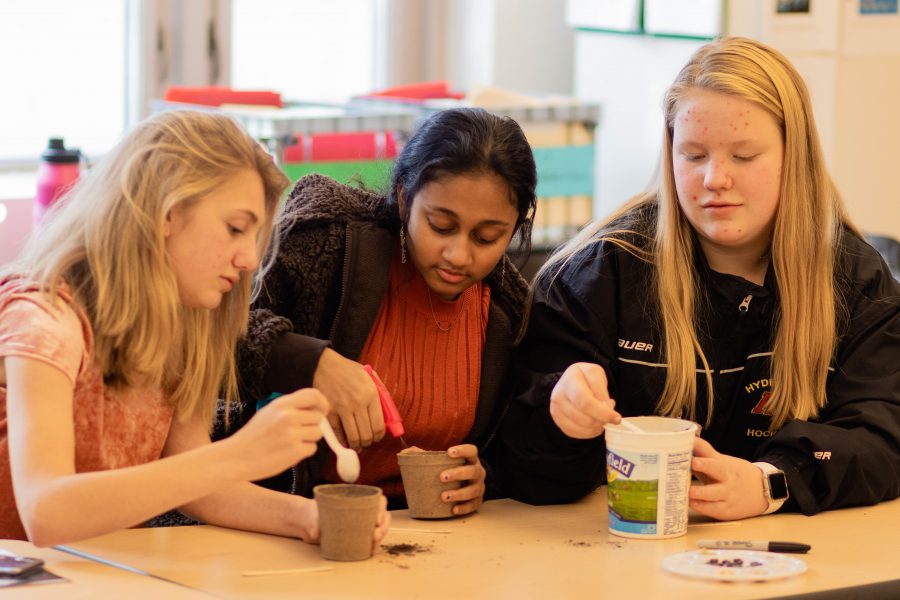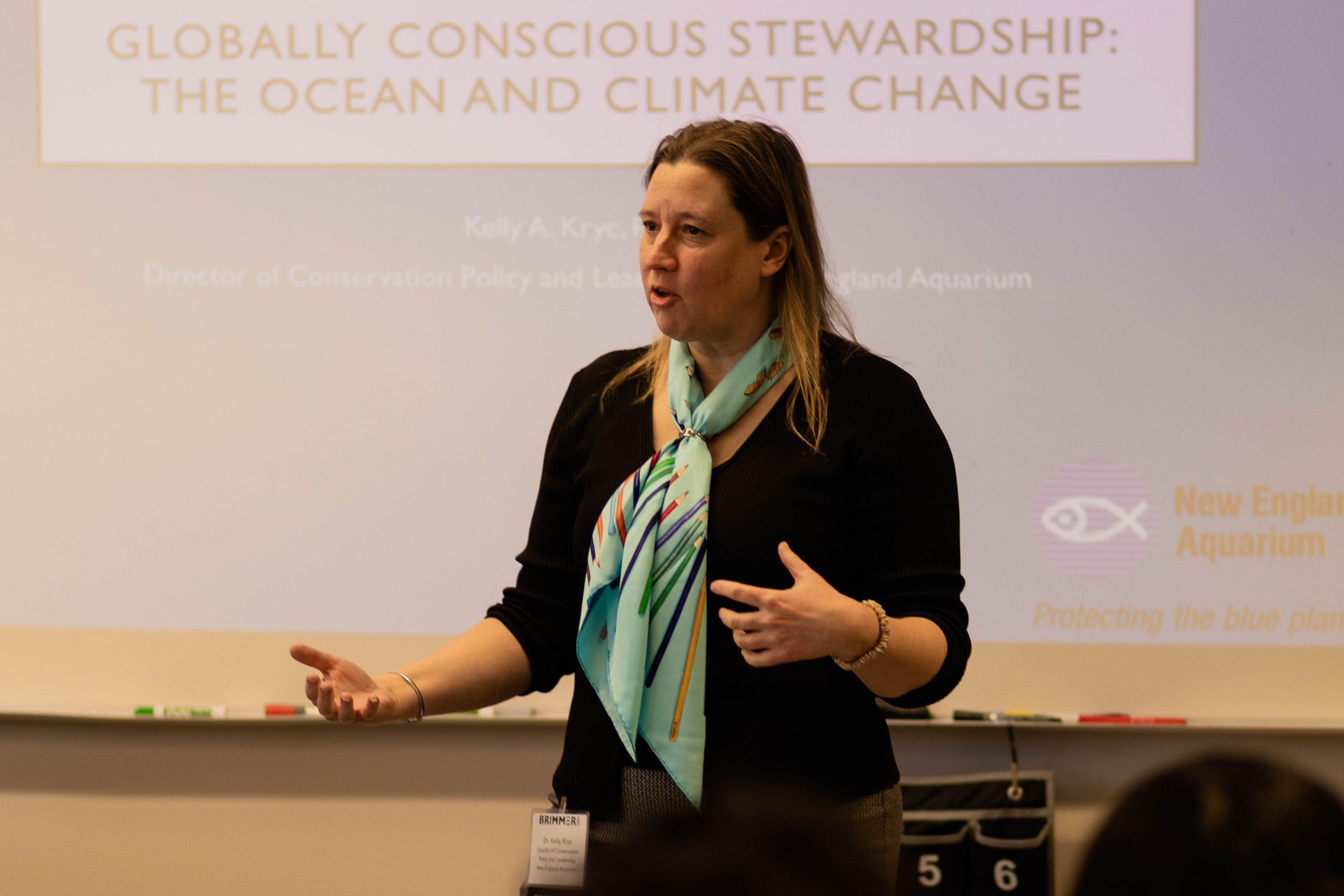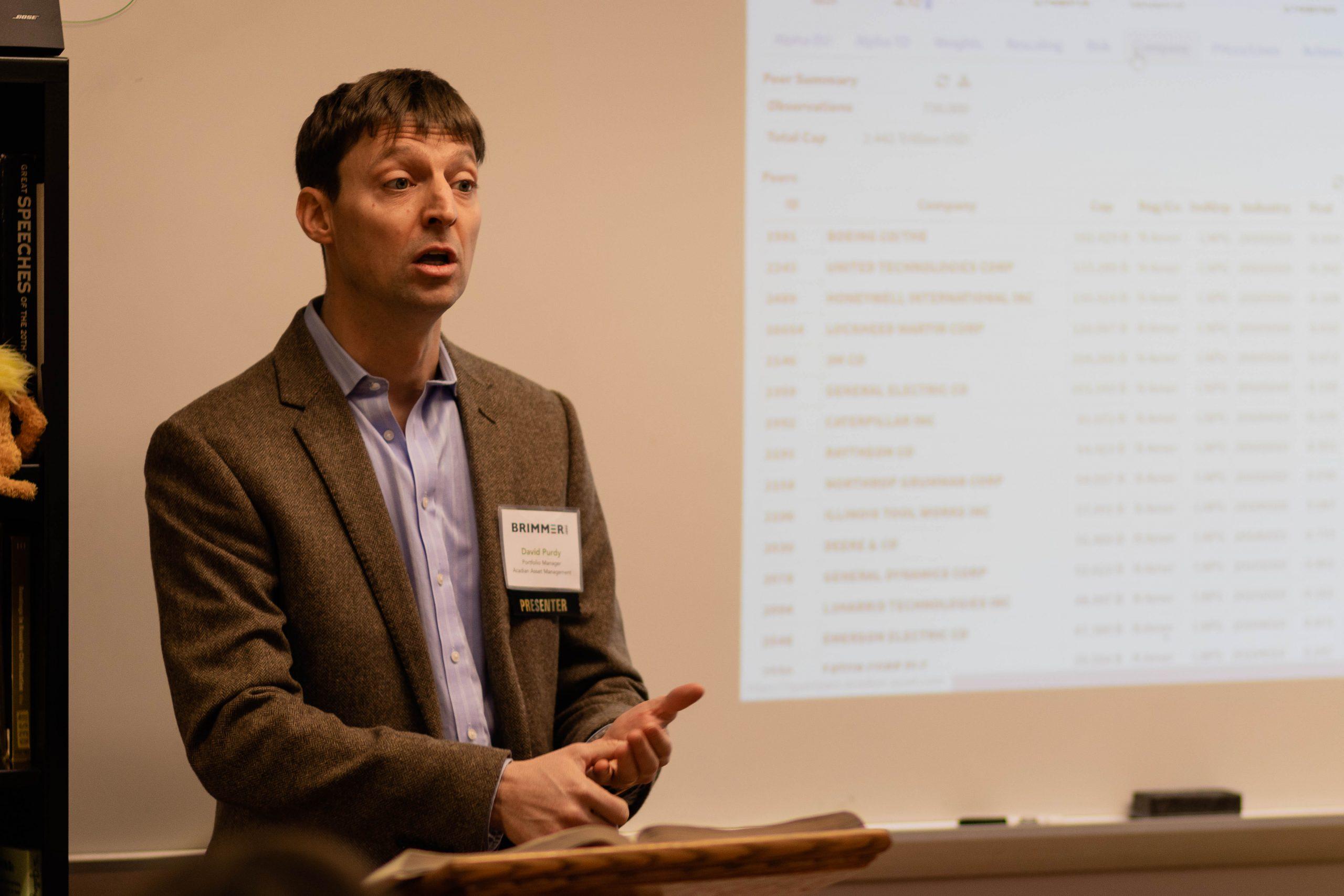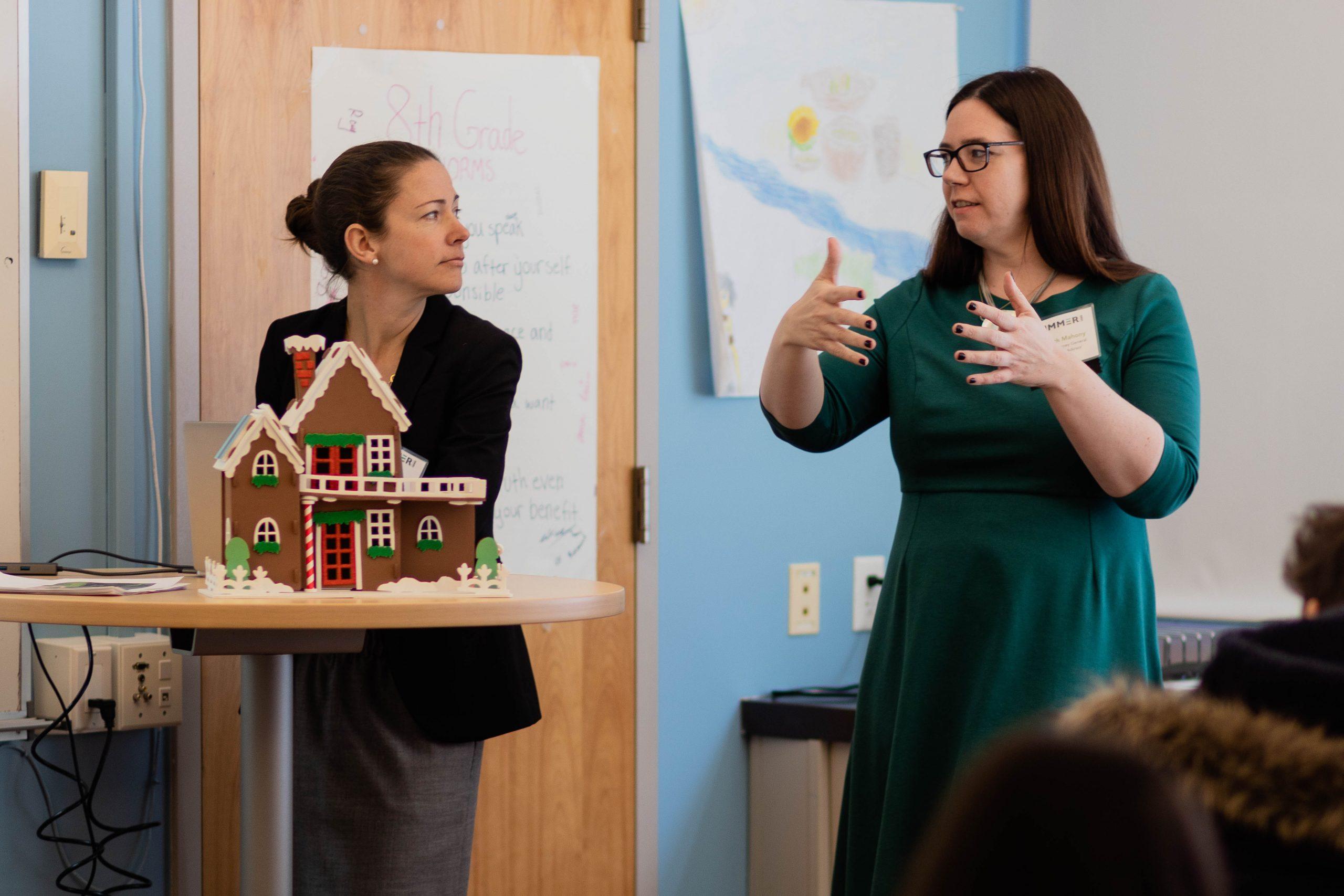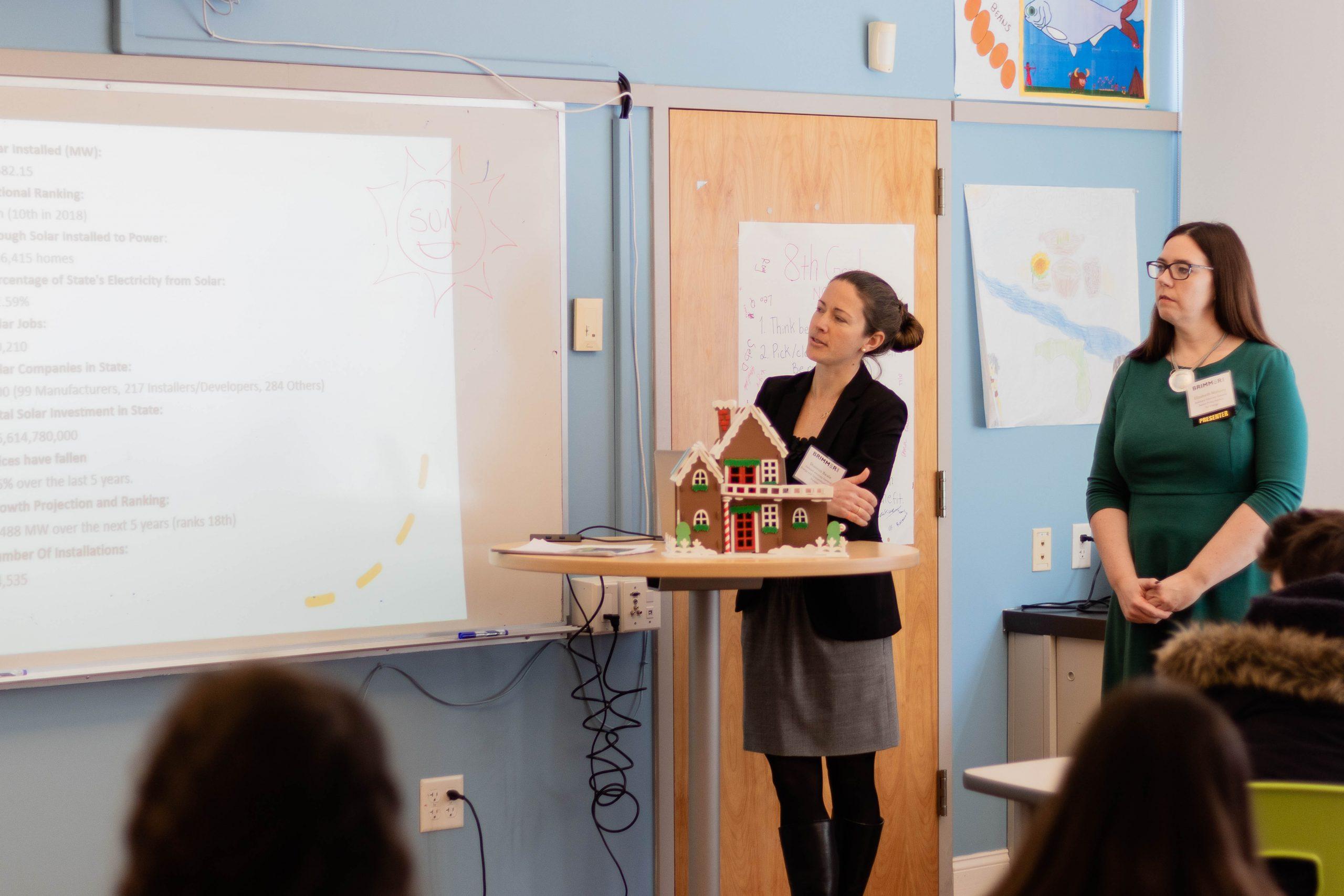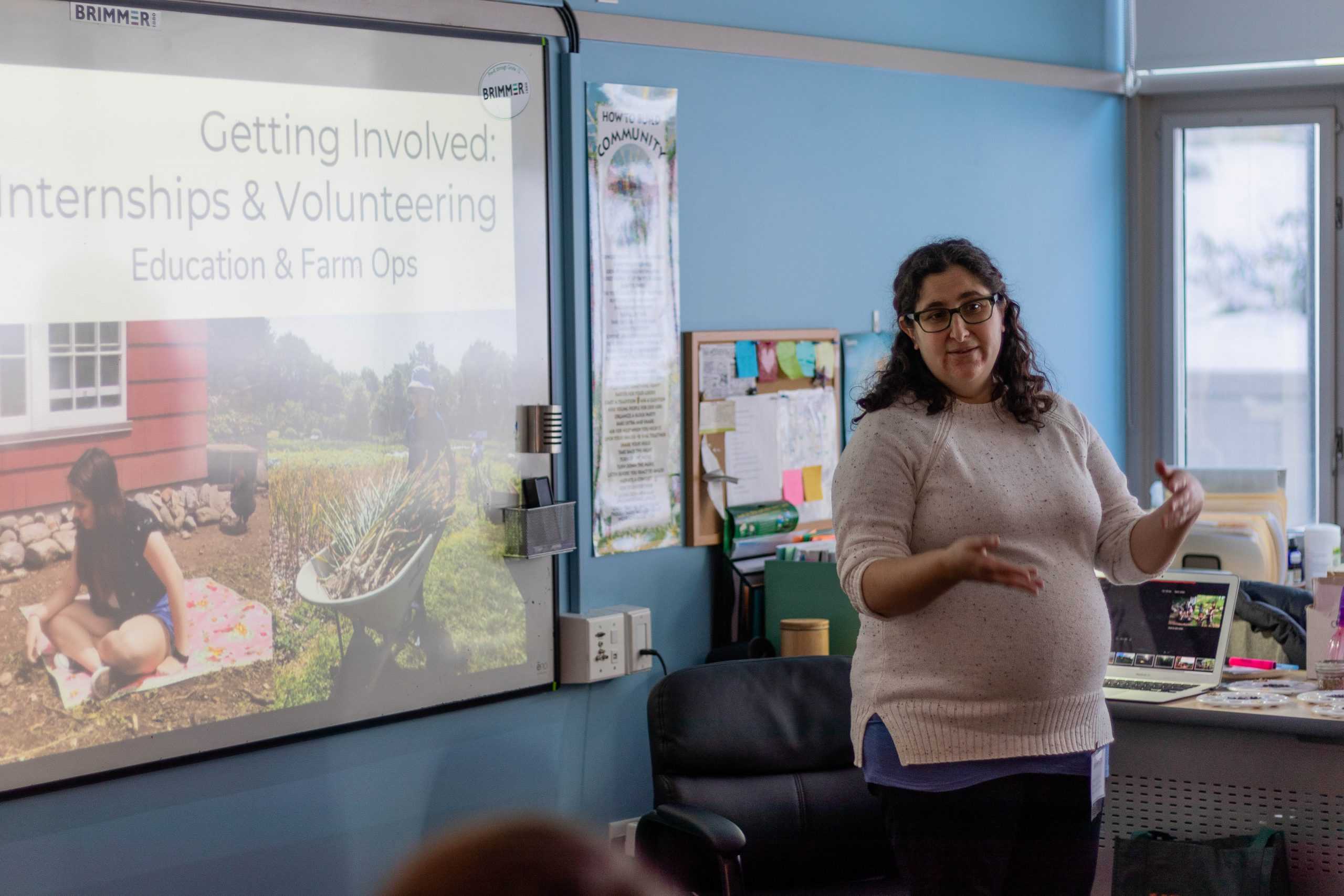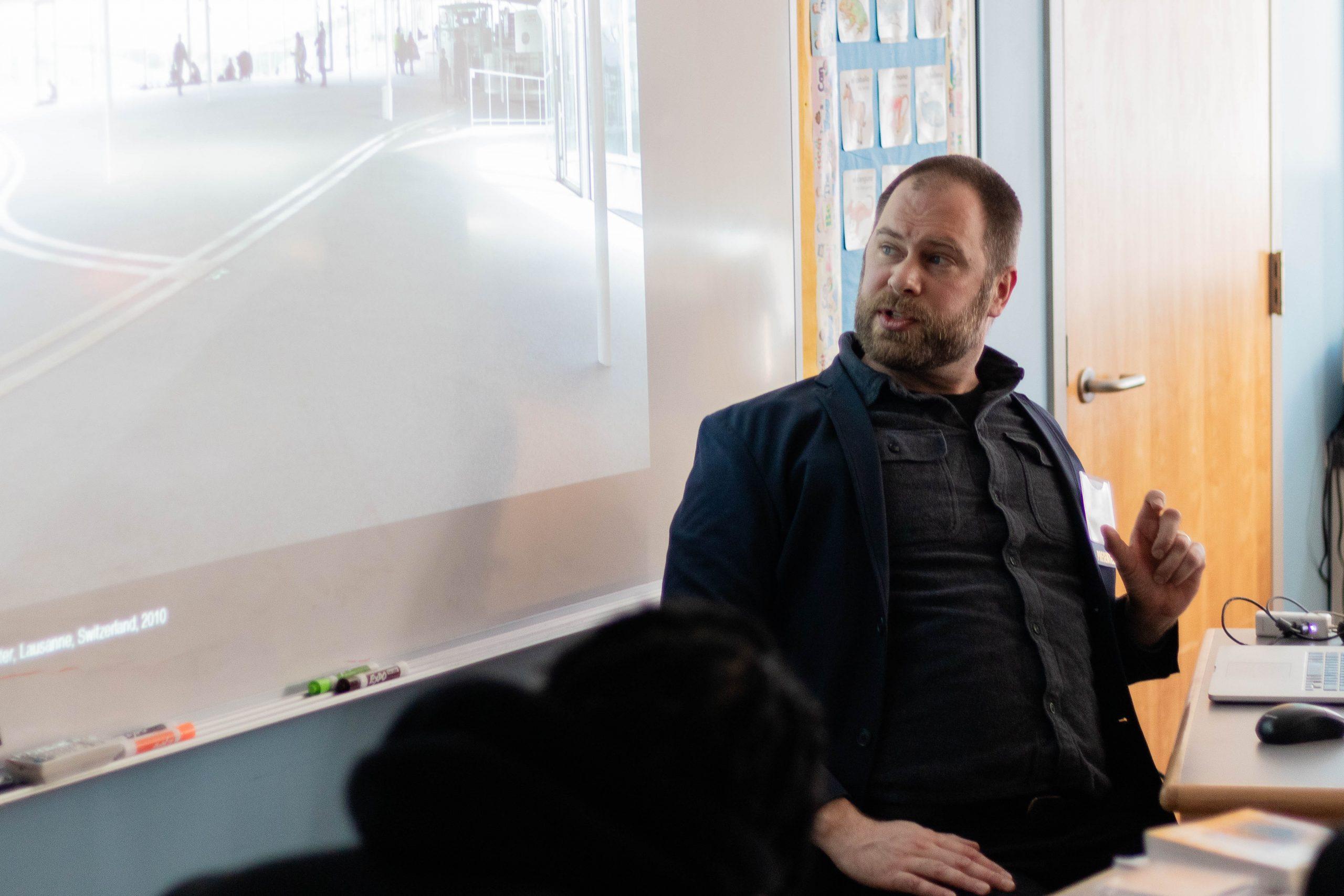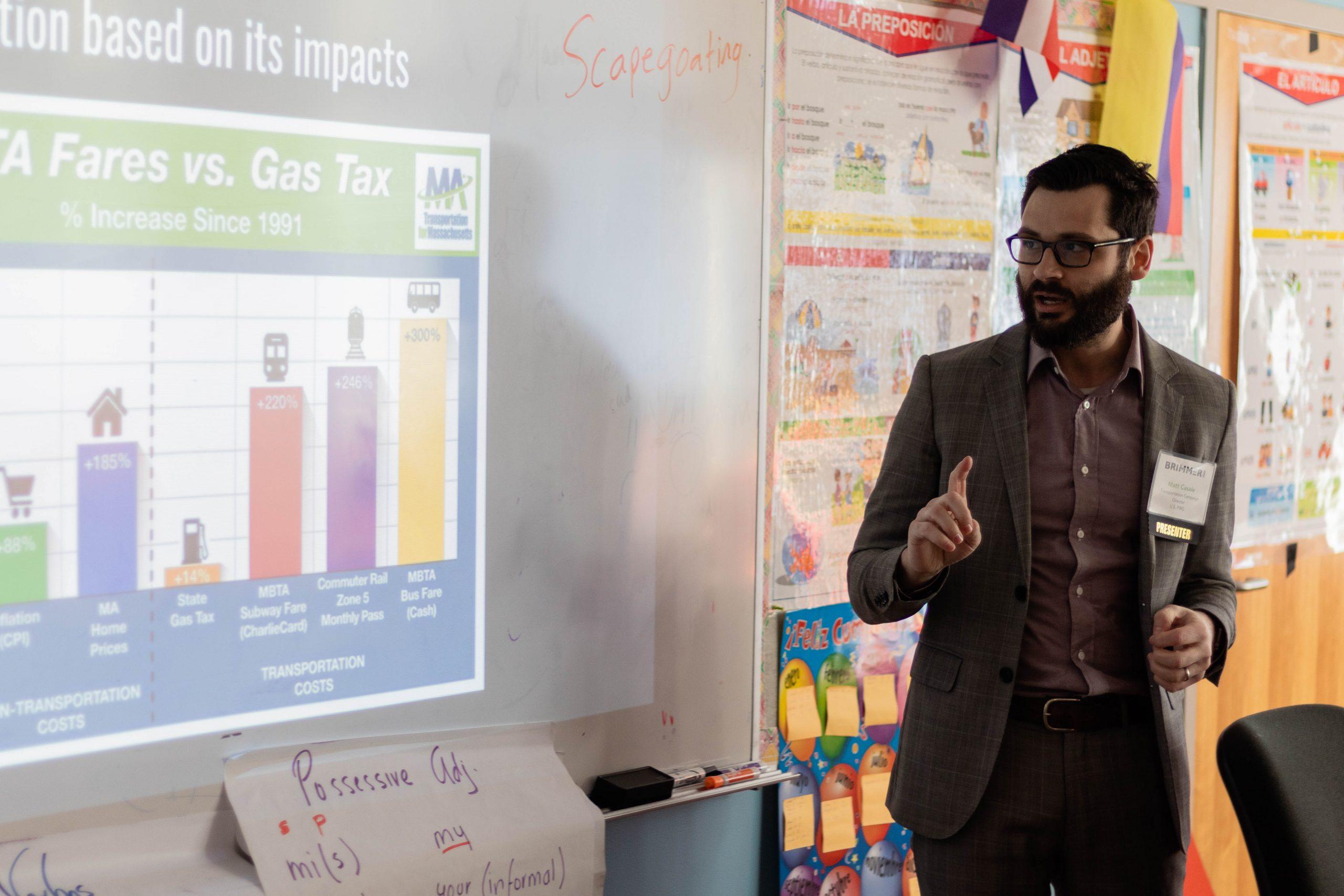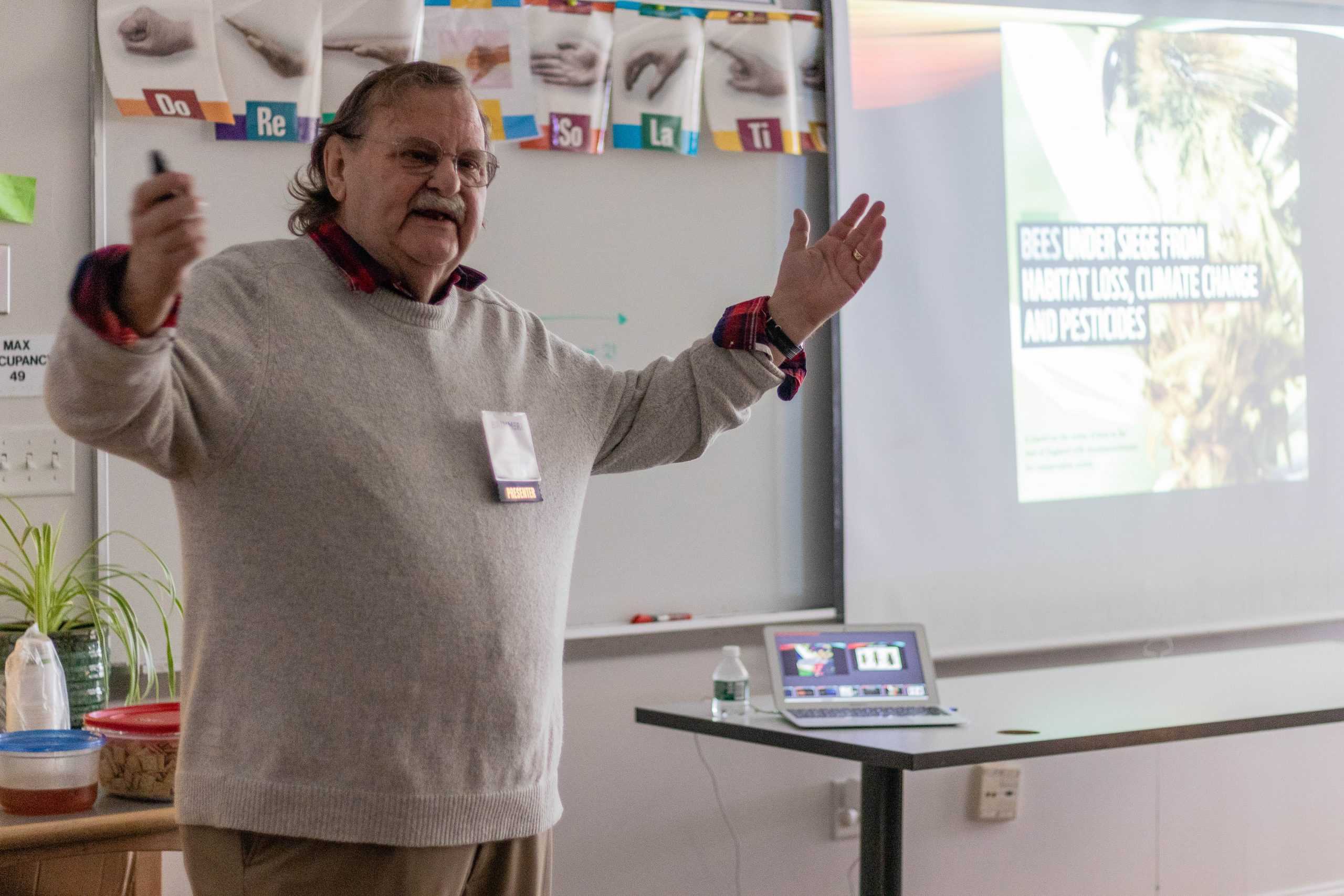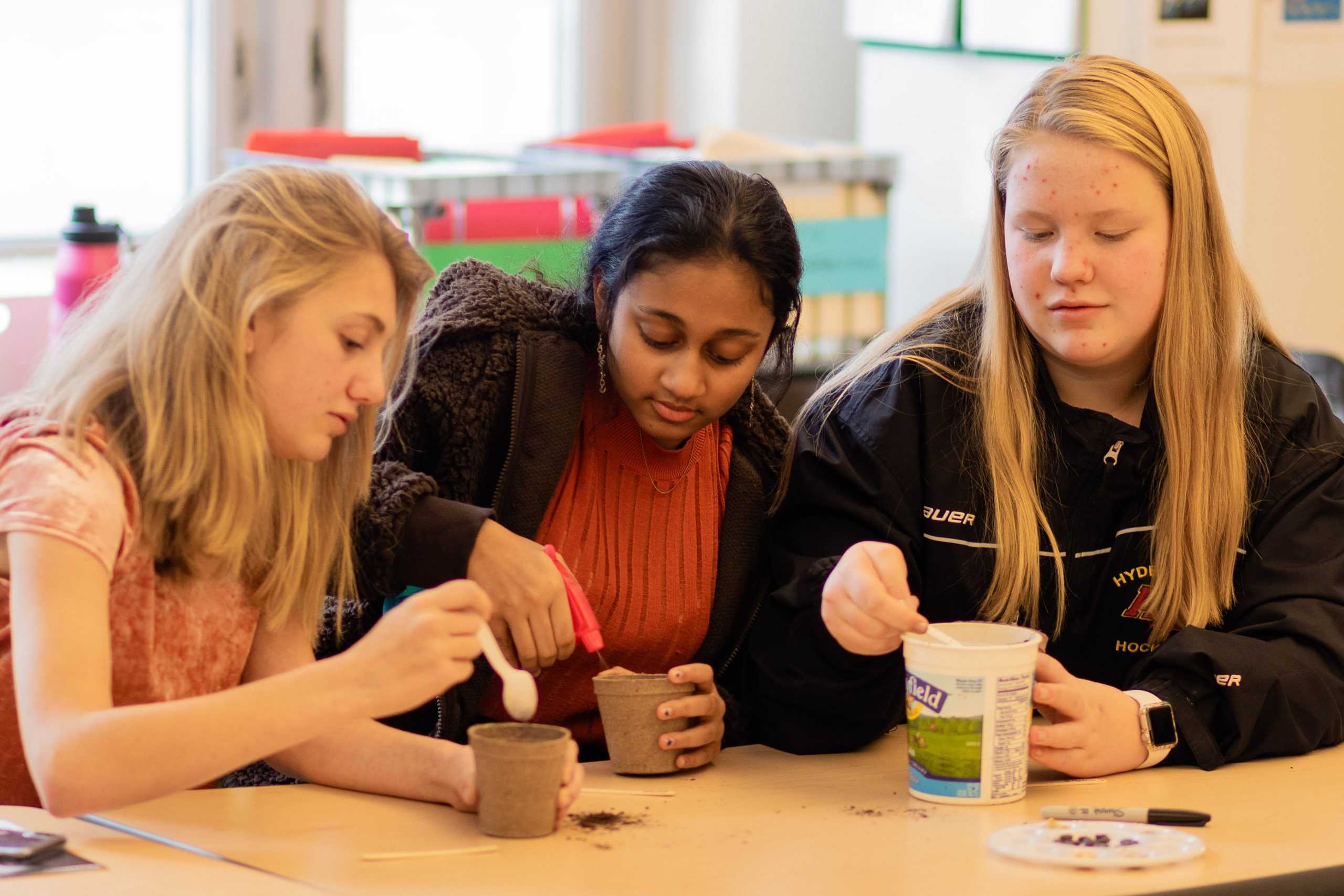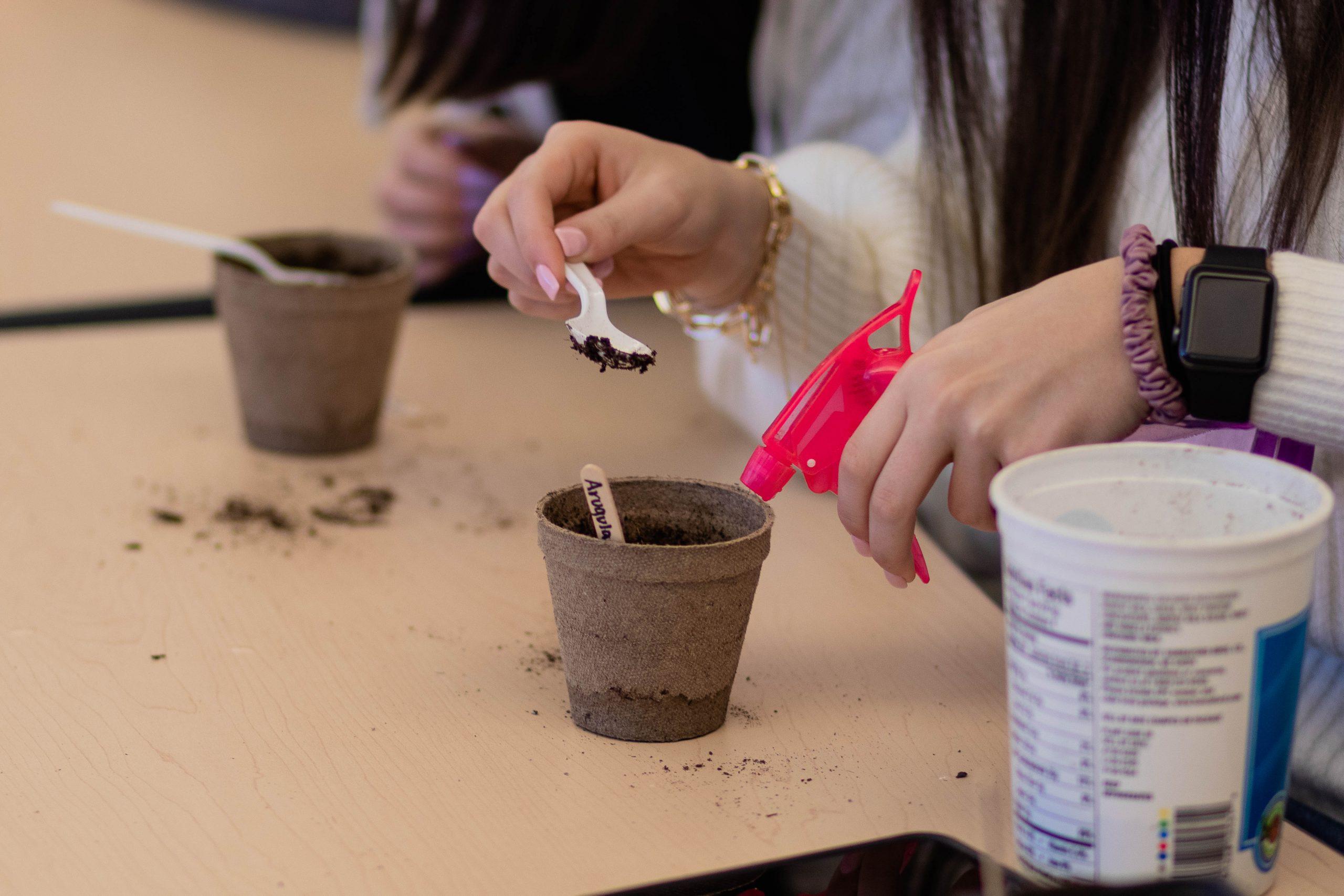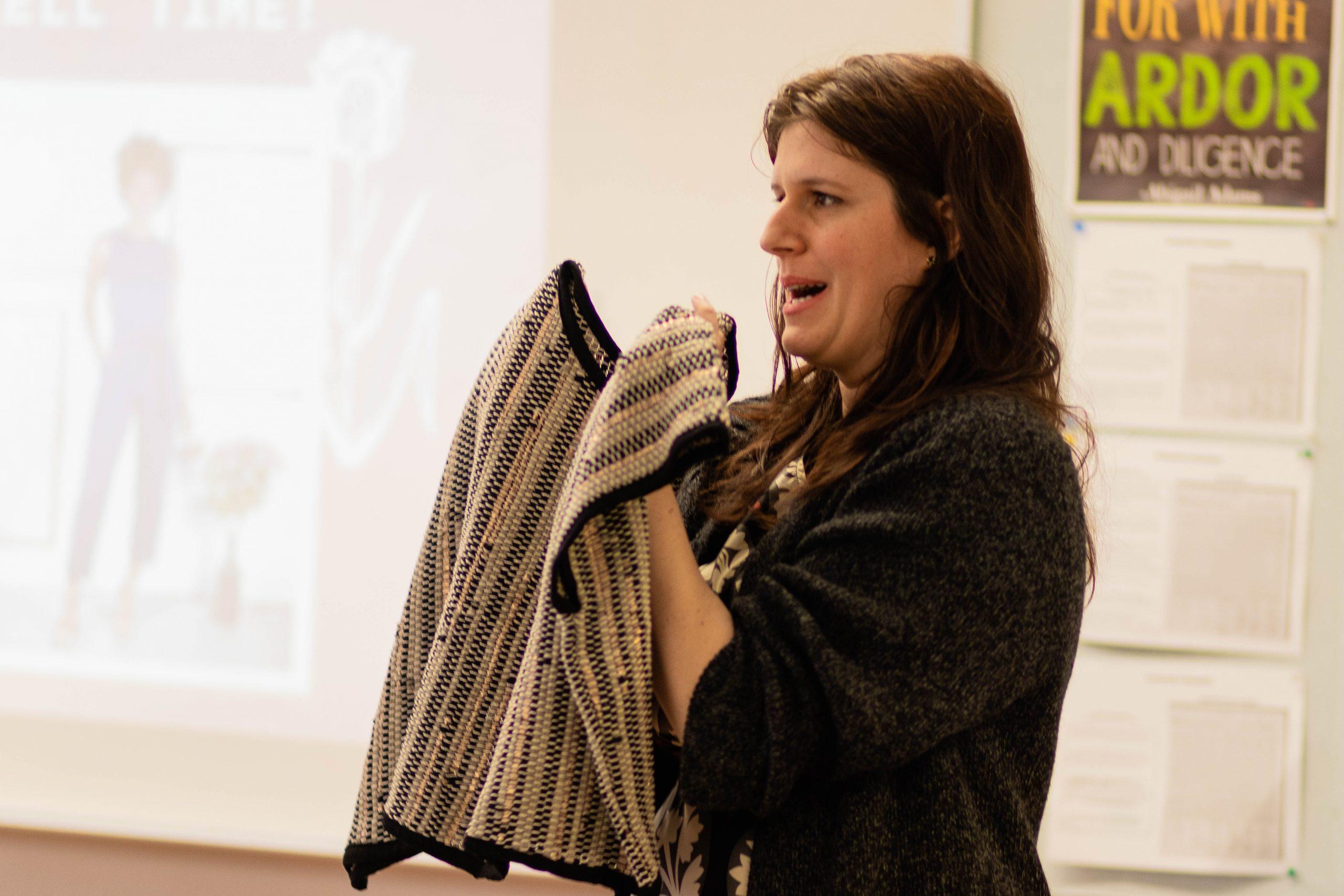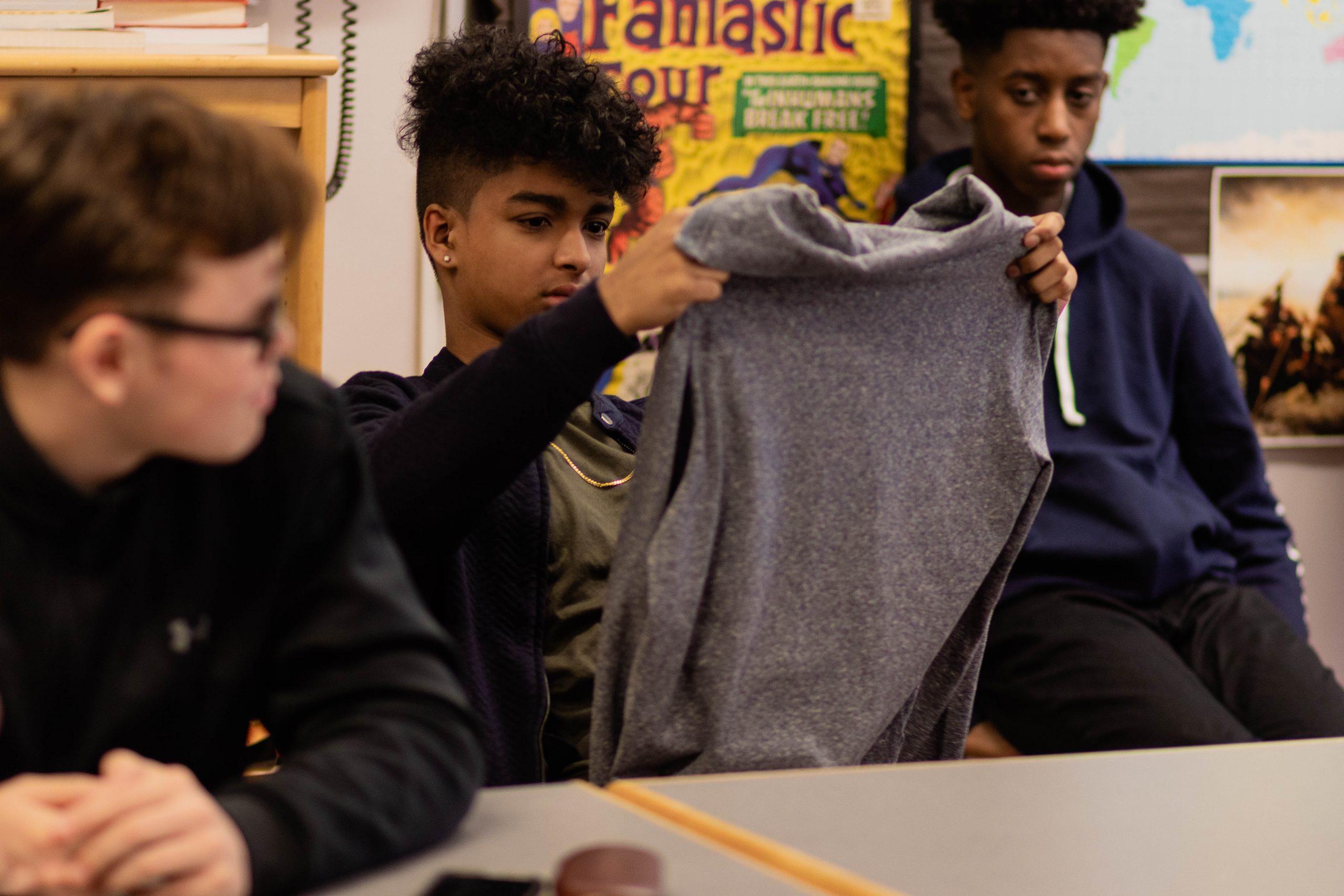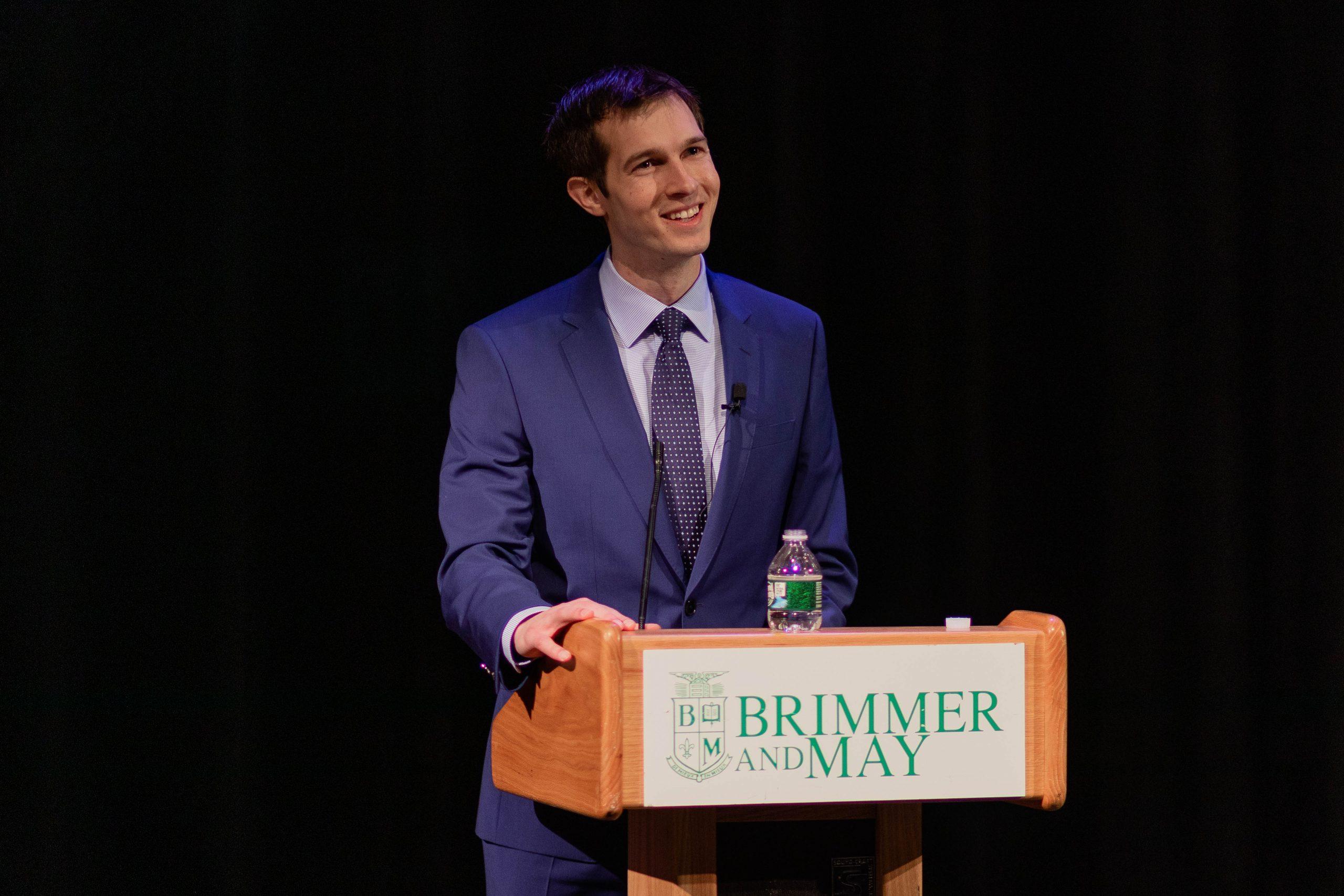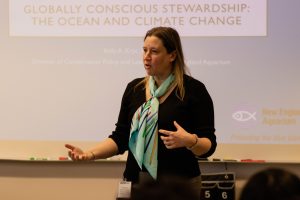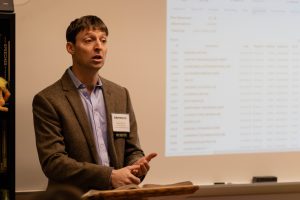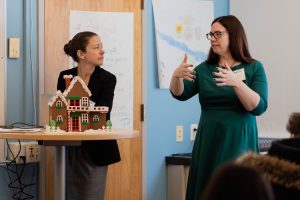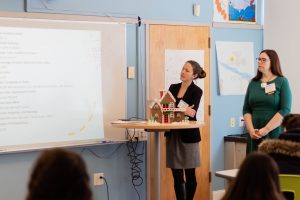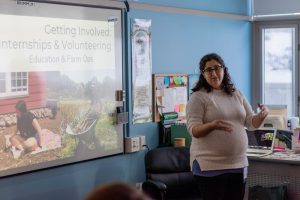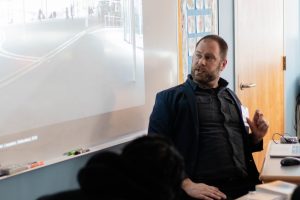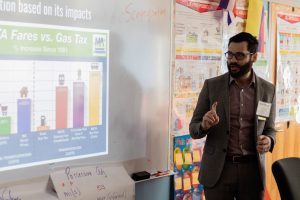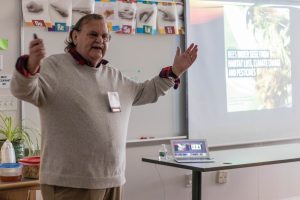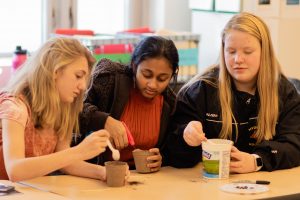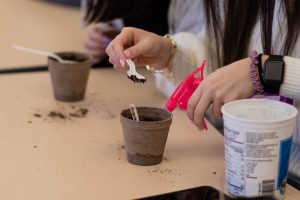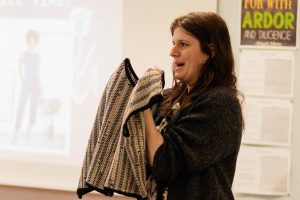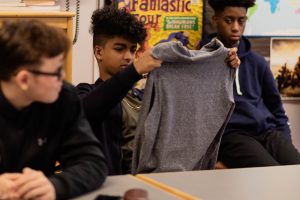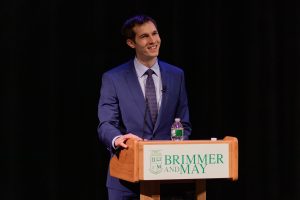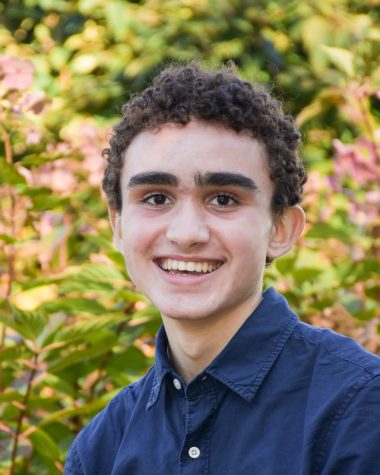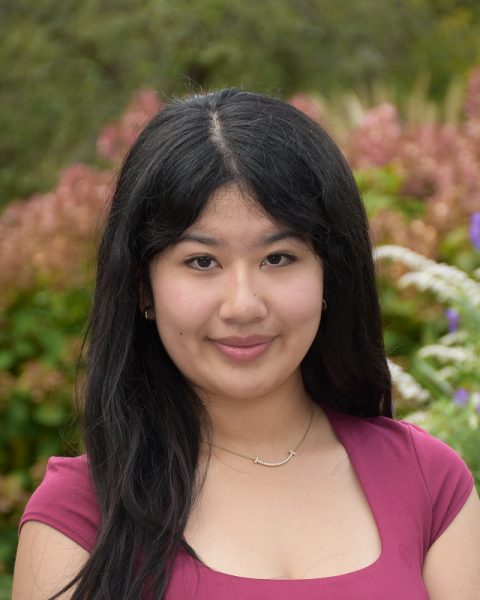For Symposium, Students Discuss Climate Change
Students plant seeds in the hands-on class, “The Power of a Community Farm”.
January 24, 2020
The School kicked off Tuesday’s 15th Annual Bissell Grogan Humanities Symposium on environmental sustainability and its impact on climate change with a keynote speech by Newton Councilman Jake Auchincloss, who is also a candidate for U.S. Congress.
In Auchincloss’s address, “Reinventing Transportation through the Green New Deal,” he asked the audience to challenge larger assumptions about climate change, and consider new habits of thought for future success in preserving our environment.
Below are highlights of the keynote, some of which have been edited for concision.
- “The first habit of thought I want to encourage you all to challenge is that cars and driving are the most efficient and most important form of transportation. This has been the implicit dogma of American urban planning since World War II. We’ve built our cities around driving. We have built our infrastructure around highways and parking.”
- “The second is how we approach research and development on energy. We need Chinese companies, Indian companies, German companies and American companies to be internalizing new energy technologies today, tomorrow. We cannot afford for us to be debating and disputing intellectual property patents, or having major courtroom battles over who owns what technology. Open source may well be the theme, going forward, for these problems.”
- “This point about Germany and Asia leads me to my third habit of thinking that I want to encourage you to challenge, and that’s that climate change is talked about domestically. Are we using plastic straws, are we using plastic bags, are we driving too much, are gasoline prices too high or too low? That’s an important conversation to have, but to discuss climate change in a truly grounded way, we have to recognize that America’s about 14 percent of all carbon emissions in the world, and that percentage is going down. If we want to talk about climate change in the world today, we have to recognize that China stands as the largest emitter of carbon in the world, and that India and China are the keys for how we are globally going to solve a global problem.”
- “This segues to a habit of thought that I would encourage you to challenge. There’s this idea that, necessarily for us to be environmentally sustainable, we have to take an economic hit, that growth and sustainability are somehow at odds. A study led by the Boston Consulting Group and the World Economic Forum, a thousand companies, ranging in size from $25 million to $5 billion were reviewed. Within this pool, more than a dozen companies were considered environmental champions, with sustainability practices that were incredibly effective, innovative, scalable. These companies consistently generated above‑average growth rates and profit margins. Their environmental efforts paid off financially through the use of multiple approaches. They invested in more sustainable options up front, that produced greater returns down the line. Sometimes they used their sustainable edge as a marketing appeal to consumers, who thereby increased their purchasing of their goods.”
- “The last habit of thought that I’ll leave you with is that the term sustainability is functionally and necessarily an environmental term. I think of sustainability as not borrowing from the future when you are building in the present. One of your panel speakers today, Emily Norton, is a colleague of mine on the Newton City Council. She is a major advocate for the environment here in Massachusetts. In the Newton City Council, she’s also something of a fiscal hawk. What she oftentimes says is that taking out huge debt for post‑employment healthcare or pension liabilities and leaving our kids to pay those debt, that is not sustainable either. That is not practicing sustainability. A $20 trillion federal government budget debt is not a sustainable practice because it’s going to be your generation that’s paying for that.”
Below is a word-for-word transcription of the keynote, aside from the first two minutes due to technical difficulties with recording.
https://bmgator.org/wp-content/uploads/2020/01/Keynote-Transcript.pdf
Following Auchincloss’s speech, students participated in workshops that built on the day’s theme.
https://bmgator.org/wp-content/uploads/2020/01/Bissell-2020.pdf




















































